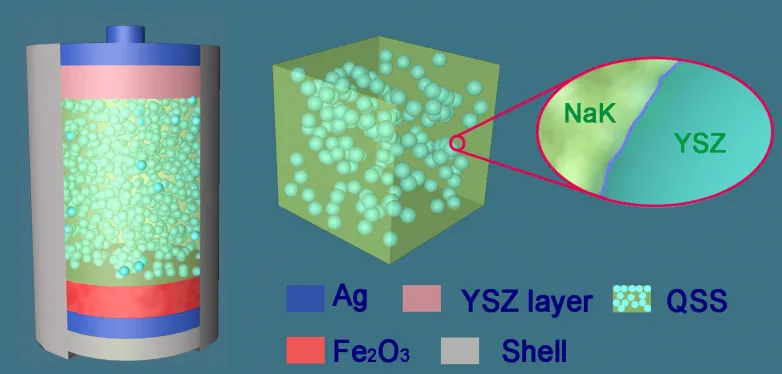Salt battery style gets over 'bump' in the road to aid electric vehicles go above and beyond
- Making use of salt as a key ingredient, Chinese and also British researchers have actually designed a new sort of rechargeable battery that can accelerate the shift to greener, electrical transportation on our roadways.

Numerous electrical cars (EV) are powered by rechargeable lithium-ion batteries, but they can lose power as well as power over time. Under particular conditions, such batteries can additionally get too hot while working or charging, which can likewise degrade battery life and also decrease miles per cost.
To resolve these concerns, the University of Nottingham is teaming up with six scientific research study institutes throughout China to develop an ingenious and also budget friendly energy store with the combined performance qualities of a solid-oxide fuel cell and also a metal-air battery. The new battery could significantly expand the variety of electrical lorries, while being fully recyclable, environmentally-friendly, low-priced and safe.
A solid-oxide gas cell converts hydrogen as well as oxygen right into power as a result of a chain reaction. While they are highly-efficient at extracting energy from a fuel, resilient, inexpensive and also greener to produce, they are not rechargeable. Meanwhile, metal-air batteries are electrochemical cells that uses an affordable steel such as iron and also the oxygen existing in air to create electricity. Throughout billing, they release just oxygen right into the environment. Although not extremely resilient, these high-energy thick batteries are rechargeable as well as can save as well as discharge as much electrical power as lithium-ion batteries, but far more safely and cheaply.
In the early research stages, the research study group explored a high-temperature, iron-air battery design that utilized molten salt as a kind of electrolyte-- turned on by warmth-- for electrical conductivity. Economical and combustible, liquified salts help to give a battery excellent power storage and power capacity and also a lengthy lifecycle.
Nevertheless, liquified salts also have adverse features. University of Nottingham research lead, Professor George Chen stated: "In severe heat, liquified salt can be boldy destructive, volatile and vaporize or leak, which is challenging to the safety as well as stability of battery layout. There was an urgent requirement to adjust these electrolyte characteristics for far better battery performance as well as to allow its future use in electric transportation."
The scientists have actually now successfully enhanced the innovation by turning the molten salt right into soft-solid salt, making use of strong oxide nano-powders. Teacher Jianqiang Wang, from the Shanghai Institute of Applied Physics, Chinese Academy of Sciences, that is leading this collaboration project has forecasted that this quasi-solid-state (QSS) electrolyte is suitable for metal-air batteries which run at 800 ºC; as it reduces the evaporation and also fluidness of the molten salts that can take place at such high operating temperatures.
Project partner, Dr. Cheng Peng, additionally from the Shanghai Institute of Applied Physics, Chinese Academy of Sciences, describes a distinct as well as beneficial style facet of this speculative research. The quasi-solidification has actually been achieved using nanotechnology to create a flexibly-connected network of strong oxide fragments that function as a structural barrier locking in the molten salt electrolytes, while still permitting them to safely perform electricity in extreme warmth.
Teacher Chen, who is leading a molten salt electrolysis lab in Nottingham, hopes the group's "motivating results" will assist to develop an easier and a lot more reliable technique to designing low-cost as well as high-performance molten salt metal-air batteries with high stability as well as security.
He includes, "The changed molten salt iron-oxygen battery has wonderful potential applications in new markets, consisting of electrical transportation and also renewable energy which require innovative storage space solutions in our residences and also at grid-level. The battery is additionally, in concept, efficient in keeping solar warmth along with power, which is highly-desirable for both residential and also industrial power demands. Molten salts are currently made use of at large range in Spain and also China to record as well as save solar warmth which is then transformed to power-- our molten salt steel air battery does both work in one device."
The complete post, "Quasi-solid-state electrolyte for rechargeable high-temperature molten salt iron-air battery," detailing the outcomes, is released in the journal Energy Storage Materials.
Also read

